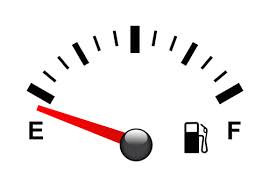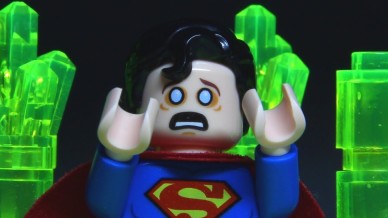The image of the maniac is ingrained in our culture. What is a common image of mania? While I hate to perpetuate the stereotype, I even think of Jack Nicholson in The Shining, hacking through a door with an ax.
What do you think of when you hear the word mania? You may imagine a business person, working long hours and getting things done. You may even discount the term mania because you think it is a harmless thing, like Sonic Mania or Mattress Mania, where some spokesperson in a commercial shouts “These low prices are crazy!”
But that is not the normal or reality for most people struggling with mania. How would I know? I know because I have bipolar disorder and I often deal with something very similar to mania, which is hypomania.
What is Hypomania?
First, let’s look at a definition because I’m a good English scholar.
According to the Oxford English Dictionary, mania is “one of the aspects of bipolar (manic-depressive) mood disorder, characterized particularly by euphoria, grandiose thought, rapid speech expressing loosely connected thoughts (flight of ideas), decreased need for sleep, increased physical activity, and sometimes delusions or hallucinations” (OED).
But I said hypomania, not mania. So what does hypomania mean?
Hypomania is defined as “A minor form of mania, often part of the manic-depressive cycle, characterized by elation and a feeling of well-being together with quickness of thought” (OED). But this definition, in my opinion, is underselling the condition. As someone with bipolar disorder, I occasionally suffer from hypomania and it is far from simple.
The Reality
When I’m hypomanic, I can go with little or no sleep. Despite this lack of sleep, I feel an extreme boost of energy, like lightning in my veins. I speak quickly, think quickly, zip around the house like The Flash or Quicksilver.
I am invincible. I can do no wrong. Every idea is pure gold. I need to buy that useless something when I don’t have much money in the bank. My mood changes on a pin, from happy to angry to irritable. I forget to eat. I think up a thousand new projects that need to happen now. Then I reach a tipping point. I become highly aware that I’m out of control. I’m dangerous to myself and those around me. I need to stop.
But I can’t stop. I can’t focus. I can’t come down off this high. My thoughts and actions become foreign to me, to the point of annoyance. I can’t control myself.
Then the crash. My seemingly endless amount of energy falls to E. 
Now there is only regret and exhaustion. Can I return this item on Amazon or in store? Do I really want to start a podcast? When was the last time I had a meal? I did what?
Depression begins to creep in. I go from Flash/Quicksilver to some slow turtle creature. My life becomes boring and everything takes effort, like walking through Jello.
What Can Be Done?
When I describe this process to people, they are usually stunned. Then they all ask the same question: How do you recover? Here, I’d like to break down my answer.
First, I have to acknowledge that yes, I am hypomanic. I am experiencing something that may feel wonderful at the time but it will pass.
Second, I try to minimize the damage. I avoid Amazon.com, which is my Kryptonite (apparently, I have superheroes on the brain today). If I cannot avoid Amazon, I put all the things I want to buy in my Wishlist or my Cart, but I do not press “Buy.” For food, I stock my fridge with easy-to-make items and snacks. I schedule my day to include meals and I will sometimes set reminders telling me to eat.

Third, I take advantage of it. The ideas that come when I’m hypomanic can be great. But I don’t pursue them all. I write them down in a notebook or an app like Evernote. I get everything out of my head when it hits. Maybe one day, I’ll start that podcast, but not today. Once the ideas are out, I don’t have to dwell on them.
Fourth, I try not to let it interrupt my schedule. My hypomania is typically tied to my monthly cycle, so I know when it is coming. I block off days that I know I will be hypomanic and do not try to be productive on those days. If I have an appointment, I try to reschedule. But some things can’t be avoided. If I have classes or something that can’t be moved, I tell the person in advance that I’m feeling a little off today, just a heads up. I don’t go into detail unless I have to; they don’t always need to know.
Last, I try to fight it. I try to sit down and write or read with no distractions. I use my energy to clean the house–might as well put it to good use. (PS- I generally hate cleaning, but when I’m hypomanic, it is a great outlet.) I try to be calm and not give into the hyper energy that I feel coursing through my body. This doesn’t always work, but I try, which I feel is more important.
Conclusion
While hypomania, or mania, is not a walk in the park, it is manageable. The key to dealing with it is the same key to dealing with any aspect of mental health: self-awareness. Look at the patterns in your life. Notice things that seem to crop up. Keep a journal or even a mood journal. I use an app on my iPhone called iMoodJournal, which is also available on Google Play (link here). I’ve been using this app for over a year and it is great for tracking moods and patterns.
Also, know that you are not alone. There are many people who struggle with the same things. Reach out. Ask your friends and family for help. Ask your doctor. Look for communities online. I am a member of a few groups on Facebook, including TWLOHA, who remind me that my struggle is valid and I don’t have to be in it alone.
Note: If you want to reach out to me, you can reach me on Twitter @LeslieJClaussen or via my website, LeslieJClaussen.com.








